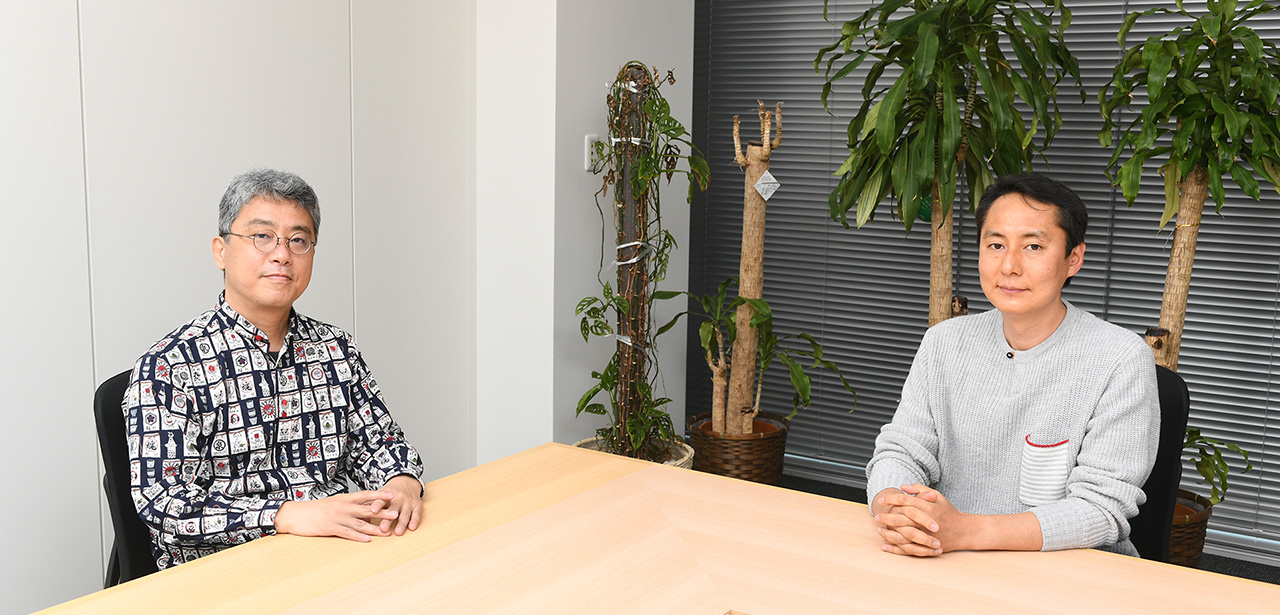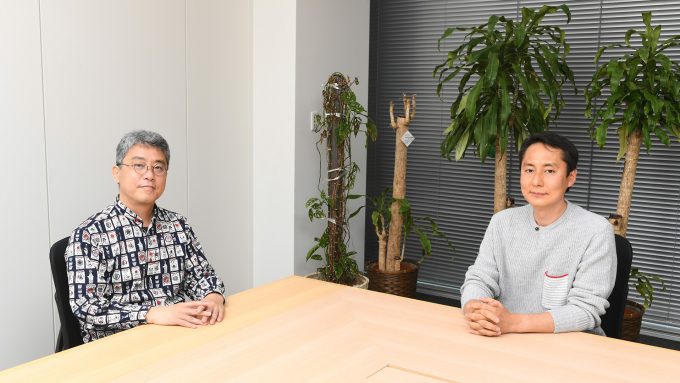“WE DISCUSS VANA’DIEL” is a series of conversations between Producer Matsui and special guests who are familiar with FINAL FANTASY XI (FFXI). Our eleventh guest is Yoshitada Iwata, who has been closely involved in Ragnarok Online (RO), an MMORPG which, like FFXI, is celebrating its 20th anniversary in 2022. In this third part, Producer Matsui and Mr. Iwata shared their ideologies regarding long-term MMORPG operations.
General Manager of Operations, Development Division, GungHo Online Entertainment, Inc. He joined the company as a GM in 2002, when RO was launched in Japan. In addition to leading the GM team, he was also involved in the development and operations of other MMORPGs, such as Emil Chronicle Online and Grandia Online. Since 2010, he has been overseeing numerous titles within the company as Executive General Manager.
 Ragnarok Online is an online game for PC developed by Korean game development company Gravity, available all over the world since August 2002 (since December 2002 in Japan). Cutely deformed 2-dimensional characters and the 3-dimensional world are the game features.
Ragnarok Online is an online game for PC developed by Korean game development company Gravity, available all over the world since August 2002 (since December 2002 in Japan). Cutely deformed 2-dimensional characters and the 3-dimensional world are the game features.
Operation ideologies of long-term MMORPGs
RO, like FFXI, will be celebrating its 20th anniversary in 2022. What are your honest thoughts on that, Mr. Iwata?
- Iwata
As I previously mentioned, RO is the title that got me started in the industry. It truly fills me with pride to know that the game is persevering even 20 years later. RO had me absolutely stunned when I first started playing, and it brings me joy to think that many others must have also felt the same way.
- Matsui
For many people, I’m sure their initial experience with online games is something they’ll never forget.
- Iwata
RO managed to launch prior to the release of other MMORPGs for PC, so many players jumped on board, including those chasing the latest trend. As those people came together as a community, they became part of the game’s charm themselves, sparking the interest of more and more newcomers. I really get the sense that RO has continued to thrive in this manner for 20 years.
As an MMORPG grows older, dedicated fans tend to gradually escalate their demands. But on the other hand, neglecting to bring in new players will cause the service to decline. What are your thoughts on this dilemma?
- Iwata
Due to the nature of MMORPGs with character progression, it’s inevitable for long-term games to have disparities between players. Each group of players has their own demands, so I believe a service that can 100% satisfy each and every customer is an unrealistic ideal.
How do you think that should be balanced?
- Iwata
Back when I oversaw RO, I consciously drew a line between game elements I wouldn’t mind changing and the core aspects that should be left untouched. It’s especially important to objectively analyze how the game is received by customers who play it, rather than the impressions of the development or operations company. That's easier said than done, but something I’ve taken to heart is the mindset of trying to understand how they feel, even when I can't relate.
- Matsui
That's the same stance we take with FFXI operations.
Changing FFXI to be enjoyable for solo players
Many aspects of FFXI were originally balanced for cooperative play but have recently been adjusted to be enjoyed solo. What led to this major change?
- Matsui
It was a bit of a special case with FFXI. After FFXIV succeeded it as the next MMORPG and offered a robust service, there was a concern that the two titles would cannibalize each other if FFXI maintained its ongoing direction. This meant that we needed to find a new purpose for FFXI, and with that in mind, the first thing we did was to take care of our existing players.
Could you elaborate on that a little more?
- Matsui
Back in the day, the biggest appeal of playing FFXI was taking down superior foes through cooperative play. However, after more than a decade since launch, players’ everyday lives drastically changed. I imagine there are quite many who still yearn for a solid cooperative play experience but can only log in for an hour or so before heading to bed. After considering what was necessary to make FFXI playable for those people, we chose to significantly expand on what could be enjoyed by solo players with limited time to play.
Sounds like you reached that conclusion from analyzing how the game is received by customers who play it, as Mr. Iwata mentioned earlier.
- Iwata
When you’ve been operating an online game for so long, there are bound to be occasions where players scold you, “Get off your high horse, you have no idea what you’re talking about!” But even when they feel that way, the truth is that we’re operating our online games with the goal of having our customers enjoy them. That’s something we've never wavered on, and I don't see that changing in the future either.
- Matsui
That's something I can really relate to. With online games that have reached a certain level of popularity, I personally believe that in essence, they no longer belong to the development or operations teams, but the player community instead. The way I see it, we're simply the ones making adjustments to the game, though perhaps you could say that's simply where we’ve ended up after many years.
A drastic change to the appeal of MMORPGs
The game design of MMORPGs has changed dramatically over the last 20 years, hasn’t it? It almost feels like a completely different genre compared to what it was like when FFXI and RO launched.
- Matsui
In that sense, I'd say things changed dramatically when mobile games became a mainstream game genre. During the first decade of FFXI, back when mobile games weren't mainstream, time-consuming gameplay was widely accepted. Looking back, FFXI also had aspects that were accepted as “part of the experience” or “exploration,” such as spending a long time recruiting for parties or getting lost multiple times on the way to a leveling camp.
- Iwata
The same went for RO back then. When planning new content or in-game events, we didn't put too much thought into how long they would take, and instead focused first and foremost on how to get people hooked on the game.
- Matsui
Then once mobile games became mainstream ten years later, competing with other media for people’s time grew more apparent, and time-consuming designs became less accepted. So even when playing traditional MMORPGs, people felt frustrated if they were unable to immediately access the game content they were interested in. On top of that, they lost interest if the content didn't provide a decent return in 15 or 30 minutes.
We certainly saw that sort of change in trend.
- Iwata
Because of that, it might be difficult to find something similar to the experiences and impact we had during the early days of MMORPGs in today's MMORPGs. In fact, in some ways, I wonder if the younger crowd of today may be getting those experiences through social media. Making connections with people around the globe, and receiving feedback on what you've posted, just to name a few... It makes me think that perhaps the pride of obtaining a valuable item in an MMORPG and the joy of receiving a "Like" on Twitter are quite similar in nature.




